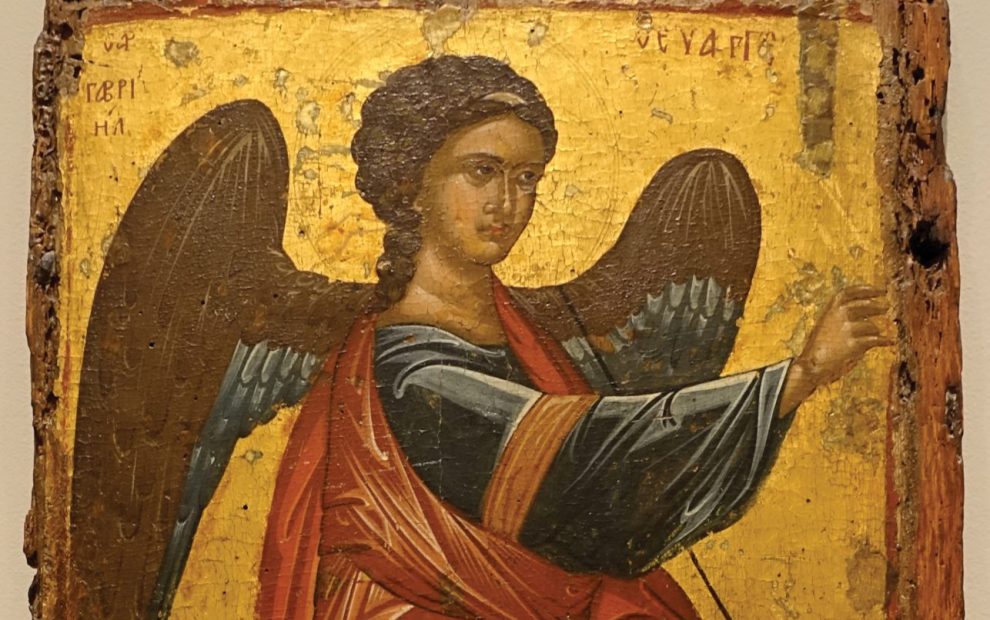Two years ago, our options for being physically present with one another became limited to nonexistent. The pandemic upended our lives while also revealing to us our innate desire for physical connection and its importance to our overall well-being. COVID-19 upended intimacy, friendship, and physical presence, creating a cone of isolation and loneliness that suffocated our lives, leaving us in an emotional state of anxiety that many are still battling two years later.
Despite this, we found creative ways to mitigate the paralyzing loneliness caused by sequestering at home. We held bouquets of flowers through windows to celebrate grandmothers’ birthdays and sang “Happy Birthday” through closed glass. We held up cardboard signs to our grandfathers with written notes expressing our love and how much we missed him at the family Christmas gathering. Everyone went through an ad hoc tutorial on how to download and use Zoom so that entire families could gather virtually and share in memorable occasions.
But this year, there is a palpable feeling that it is time to return to physical presence and celebrate Christmas as we did in prepandemic times, visiting with family and friends to spread the cheer of the season. This Christmas season, may we be inspired by scripture and may our physical interactions with one another mirror God’s joyful visitation to the world, reflecting how God pitched a tent among us and entered into a profoundly transformational relationship with us.
A divine gift
Fear is a crippling emotion that often locks us in and furiously raises our defenses against perceived intrusion to the realities onto which we wish to hold. A divine visitation, on the other hand, prepares the individual to open themself to the gift of God’s presence, a presence that promises to usher in the beginning of God’s habitation among us. It is an invitation to be wholly receptive to the transformation caused by God’s presence in one’s life.
In both the Gospels of Luke and Matthew, the angel of God makes several visits to homes in Palestine and Egypt in an effort to advance God’s plan and inaugurate divine visitation toward the salvation of the world. Each visit is accompanied by the rejoinder, “Do not be afraid” (Luke 1:13, 30; 2:10; Matt. 1:20).
Zechariah and Elizabeth, who pray for the gift of a child, receive this divine visitation and the gift of their son, John the Baptist. Zechariah experiences God’s presence in the Temple and in his conversation with the angel of God. Elizabeth experiences it when her child is conceived (Luke 1:24). The congregation at the Temple feels the presence of God in Zechariah’s temporary speech disability (Luke 1:22). All experience awe, joy, and gratitude.
Likewise, Mary experiences an unexpected visitation that changes the trajectory of her life as she becomes a recipient of God’s favors like no other (Luke 1:28). She gives herself to the divine plan, pledging her willingness to cooperate with God (Luke 1:38). The divine visitations to Joseph complement those to Mary, undergirding God’s grand plan for humanity and providing Joseph with support and encouragement for his marriage to this now pregnant young woman (Matt. 1:20).
Shortly after the birth of Jesus, the angel of God again visits Joseph, this time instructing him to flee to Egypt with his wife and newborn child (Matt. 2:13–15) to deter King Herod from his murderous pursuit of Jesus. Finally, Joseph receives a third angelic visitation with the instruction to return to Nazareth from Egypt, because Herod had died (Matt. 2:19–20).
An unusual star alerts the magi to God’s new relationship with humankind, setting them off on a voyage to visit the new king in Bethlehem (Matt. 2:1–2). They later receive an angelic visitation commanding them to return home by a different route, thereby avoiding Herod (Matt. 2:12).
Similarly, the shepherds receive an angelic visitor announcing Jesus’ birth. The day’s job of grazing their flocks almost over and resting at sunset with their eyes on their herds, these shepherds experience divine visitation and decide to stop by the manger in Bethlehem before their planned evening rest (Luke 2:8–16).
Despite these events happening in a culture centuries removed from our own, we can relate to those who receive the heavenly visitor in the Christmas story. The priest who, while performing his pastoral duties, receives a theophany of an answered prayer. The married woman whose hope of carrying a child is gradually waning when God’s gift changes everything. The young virgin with hopes and dreams that are replaced by God’s plan for her. The industrious carpenter who intends to follow tradition and start a family but who obediently acquiesces to the request of the heavenly visitor. The astrologists and scholars who are challenged to interpret the appearance of a unique star and pay their homage to the newborn king. The shepherds who accept the invitation to go to Bethlehem. Each of these helps us discern God’s presence and reminds us that God appears to everyone, no matter their social standing.
A supportive community
In the Christmas story, the people who receive divine visitation become heralds of God’s presence. Their relationship with others reveals a deep human longing for the shared experience of a life-giving story. Such an experience allows others to share in events that are reassuringly transformative.
The first time we see that divine visitation changes human relationships is when the angel reveals to Mary that her relative, Elizabeth, is expecting a child. The news of Elizabeth’s pregnancy strengthens Mary’s conviction about God’s plan (Luke 1:36–38), and she immediately desires to visit with Elizabeth; share in her joy; and provide care, presence, and support.
When Mary arrives at Elizabeth’s home, John the Baptist immediately kicks from inside the womb (Luke 1:41). While this is not unusual, in this context it seems extraordinarily unique and sure proof of what the presence of Mary means. Mary’s three-month stay brings her face to face with God’s gift to Elizabeth: a child after she had given up hope. The visit also reassures Mary of her unique place in the divine plan. It is within the context of her visit to Elizabeth that she is inspired to sing the Magnificat as she recognizes the immensity of God’s presence in her life (Luke 1:46–55).
Another example of the importance of community in divine visitation is the visit of the shepherds to the humble and modest birthplace of Jesus. This visit reveals that Jesus’ birth is for all, no matter how simple or ordinary. When the shepherds say to one another, “Let us go now to Bethlehem and see this thing that has taken place, which the Lord has made known to us” (Luke 2:15), they demonstrate that God is present to everyone and that everyone invariably has access to God’s presence. Through this story, the author of Luke reminds the community that divine visitation is available to everyone: God takes human flesh for the sake of all.
Notice that while Matthew’s visitors are the learned and wealthy magi who bring expensive gifts to the newborn king and who are often depicted in art dressed as royalty, the Lukan visitors are shepherds who go to see Jesus straight from the fields without any gifts to offer. Everyone, notwithstanding social status, is welcomed into God’s presence.
The magi follow an unusual star, reassuring themselves at every stop that they are on the right path. Determined to respond to its message of a new king, they visit the current ruler, whom they suppose to be outgoing, to ascertain his preparation for his successor. This turns out to be an unsettling visit for Herod, who summons his religious leaders to validate the magi’s message. These religious leaders confirm what the magi found, reigniting among the children of Israel hope for the impending fulfillment of God’s promise: a Davidic king to rule over them (Matt. 2:2–6) and displace the occupying Roman leadership. Herod, however, struggles: The writer of Matthew describes Herod’s mental and spiritual turmoil (tarásso) over the impending loss of power (2:3). The magi’s journey to Bethlehem represents the universal aspects of God’s visitation to humanity, while their gifts to the newborn Jesus mirror the essence of God’s habitation among us and God’s work on our behalf (Matt. 2:11).
The final example of the communal aspect of God’s visitation is the holy family’s hurried departure from Bethlehem into Egypt to save the life of their child from the murderous scheme of Herod (Matt. 2:13). Not only would this have been a daunting and awful experience with a newborn, but Herod’s murder of all children 2 years old and under in Bethlehem left pain, agony, and sorrow within an entire community.
The holy family’s unplanned international travel would have left them without connections to relatives or others in the Jewish community in Egypt who could welcome them at the city gate and facilitate their settling in and beginning a new life in a foreign land. Perhaps they met other caravans of travelers on the way: Jews returning to Palestine to visit family or for religious pilgrimage or merchants with whom they shared pleasantries and information about the highway and the communities along their route. It is possible that one such encounter led to important information about the Jewish community in Egypt or the people they should seek out when they arrived who could provide support and welcome. The casual encounter and conversation with other travelers might have provided a bit of a respite.
Family and the community of faith
After John the Baptist’s birth, the entire community rejoices with Elizabeth and Zechariah. Relatives, friends, and neighbors gather to celebrate God’s visitation to the family at the baby’s circumcision, hoping to contribute to the child’s identity by helping choose an appropriate name (Luke 1:59). Although they are surprised when the child is named John rather than Zechariah after his father (Luke 1:63), their presence gives meaning to the saying, “It takes a village to raise a child.”
Jesus also had a supportive community around him, although it looked differently from John’s. The author of Luke writes that “when the time came for their purification according to the law of Moses, they brought him up to Jerusalem to present him to the Lord” (2:22). According to Leviticus 12:1–6, this would have been about six weeks after his birth. This was an opportunity for Mary and Joseph to visit the Temple and present themselves and their newborn child to God. It is the couple’s first visit to the Temple in Jerusalem since their experiences of divine visitation and the birth of their child. They visit the Temple out of gratitude to God and to present the child to God according to tradition.
At the Temple, Simeon is waiting to receive them after receiving his own divine visitation regarding a visit from the newborn Messiah (Luke 2:26). Guided by the Holy Spirit, he goes to the Temple, where Mary and Joseph bring him the baby Jesus. Recognizing the significant gift of visiting with the Messiah, Simeon exclaims, “For my eyes have seen your salvation” (Luke 2:30), expressing his overwhelming joy and gratitude for the presence of God among us.
The prophetess Anna is also at the Temple when the holy family visits. She frequently visits the Temple, devoting herself to prayer in petitionary invocation for God’s visitation and intervention in the lives of God’s children by sending the leader and Messiah divinely promised. Her persistent prayer and fasting uniquely prepared her to receive the Messiah (Luke 2:37). She comes face to face with the promised Messiah and leaves convinced that her prayers for the liberation of Israel have received an answer.
In the Wisdom Commentary series (Liturgical Press), Barbara Reid and Shelly Matthews notice that Anna’s persistent religious devotion “prepares her to discern the moment that God’s liberating action breaks forth in the gift of the awaited child.” The encounter changes Anna, and she goes out to homes, streets, and towns announcing God’s visitation and speaking of the Savior and Messiah who will lead people to peace, prosperity, and God. She announces what she has seen to anyone who cares about the end to Israel’s toxic sociopolitical relationship with the Roman Empire.
All of these scriptural stories serve as a vital reminder that the visitation of God—God’s divine indwelling—is not possible without the community of God’s children. New York Times columnist David Brooks notices that social connection—whether with family, relatives, friends, neighbors, coworkers, or the people we causally enter into conversation with at a basketball or football game—“makes us happier, healthier and more successful and generally contributes to the sweetness of life.” Christmas is a celebration that engenders these kinds of feelings as we experience through it the grandeur of our common humanity and remember the Savior who is present with all of us.
This article also appears in the December 2022 issue of U.S. Catholic (Vol. 87, No. 12, pages 18-20). Click here to subscribe to the magazine.
Image: Archangel Gabriel, 1450–1500, Princeton University Art Museum. Wikimedia Commons.














Add comment